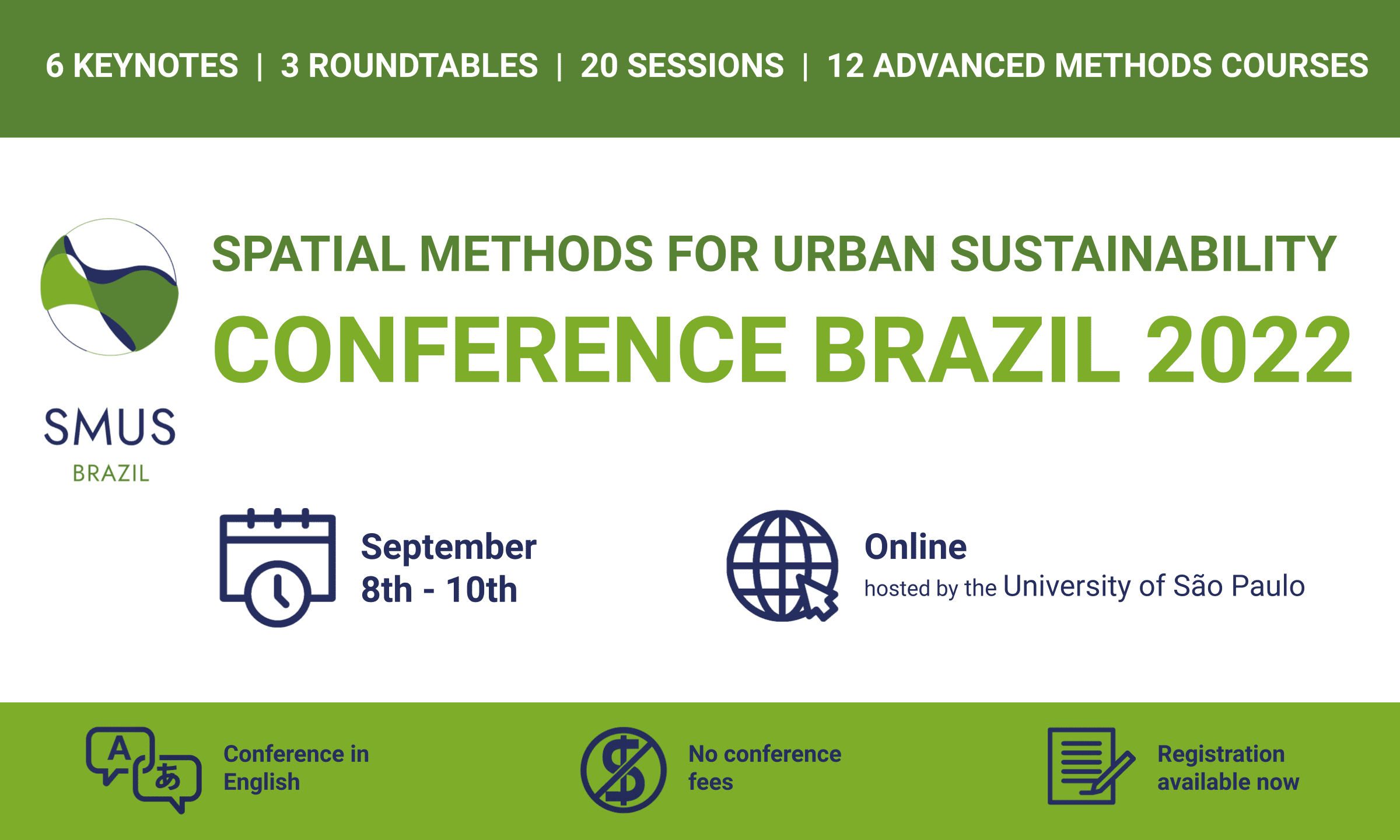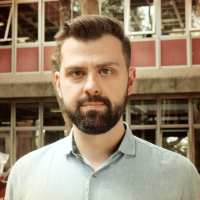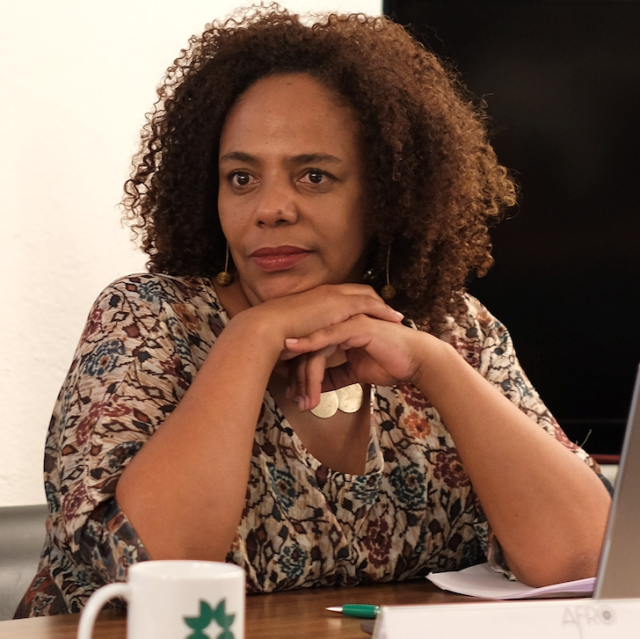
Hosted by the University of São Paulo (USP), Brazil, the 2nd International and Interdisciplinary Conference on Spatial Methods for Urban Sustainability (SMUS Conference) and the 1st RC33 Regional Conference "Latin America: Brazil” in cooperation with ESA RN21 “Quantitative Methods” are going to take place online from Thursday September 8th to Saturday September 10th, 2022. The SMUS Conference Brazil 2022 aims at furthering the global dialogue on methods by scholars and researchers from all over the world and all social and spatial sciences (e. g. anthropology, area studies, architecture, communication studies, computational sciences, digital humanities, educational sciences, geography, historical sciences, humanities, landscape planning, philosophy, psychology, sociology, urban design, urban planning, traffic planning and environmental planning) by focusing especially on the following themes:
1. Spatial methods | 2. Process-oriented, longitudinal and historical methods | 3. Decolonizing social science methodology | 4. Methods from, by and/or for the Global South | 5. Overcoming methodological nationalism | 6. Cross-cultural methods, transnational research and issues of comparability | 7. Quantitative methods | 8. Qualitative methods | 9. Mixed methods | 10. Strategies of data collection, storage and access | 11. Digital methods, big data and digital humanities | 12. Mobile, arts- and/or design-based methods | 13. Interdisciplinary and/or transdisciplinary, participatory and/or collaborative research methods | 14. Applied research methods for urban design, urban planning, traffic planning and environmental planning | 15. Evaluation methods and methods of scientific validation | 16. Research ethics | 17. Methodological issues relevant for specific research topics (for example, urban research, sustainability research, social housing, crime and public safety, or spatial inequalities concerning gender, race and/or ethnicity)
Each subject is more or less directly addressed by the five Actions that underpin the Global Center of Spatial Methods for Urban Sustainability (GCSMUS). In order to implement these Actions at USP this University and Technische Universität Berlin have signed a five-year cooperation agreement.
The GCSMUS lead partner institution at USP is the Faculty of Philosophy, Languages and Human Sciences (FFLCH), and more specifically its Department of Sociology.
The Global Center of Spatial Methods for Urban Sustainability (SMUS or GCSMUS) is one of 12 Excellence Centers for Exchange and Development (exceed), funded by the German Federal Ministry for Economic Cooperation and Development (BMZ) via the German Academic Exchange Service (DAAD).
SMUS, with its coordination base at the Technische Universität Berlin, connects close to 50 partners from eight world regions. Focusing on some of the most pressing issues related to Sustainable Development Goal #11 of the Agenda 2030, Sustainable Cities and Communities, the center works at developing transdisciplinary spatial methods by bringing together research methods from various spatial disciplines, such as sociology, geography, humanities, architecture, urban planning and design and transportation planning.
The center is organised as a peer-learning process. Our goal is twofold: to advance excellence in academic education across the spatial disciplines and to bridge the gap between research and planning practice by furthering evidence-based and low-impact urban development (LIUD). To achieve this, SMUS urges the production, teaching and exchange of a more contextualised spatial practice and knowledge and sees this approach as a precondition to lessening social inequality and increasing social, ecological and economic sustainability in cities and communities around the globe.
Follow us on social media








